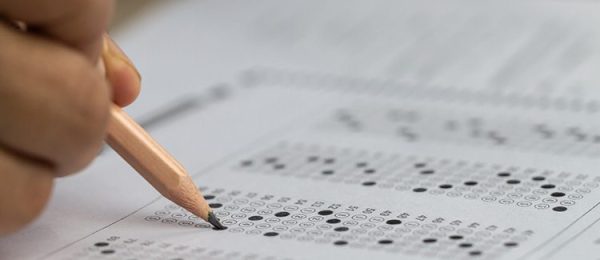A Growing Concern: Sleep Deprivation in Teens
A typical high school day starts as early as 7 am and ends as late as 3 pm. Seventy percent of students do sports after school and they do not get home until 7 or even 8 pm. The average student gets three and a half hours of homework every night. This causes the average student to go to sleep at approximately 11 pm. Students then repeat the process by waking up as early as 6 am according to the American Red Cross. The National Sleep Foundation has conducted a study that every teen needs a full eight and a half hours of sleep every night. With the number of activities that teens participate in, in our generation, the average teen is getting seven and a quarter hours of sleep. All this is just because school takes up the majority of a student’s day. High schools need to recognize the issue at hand and change the starting times of schools to fit the needs of children.
Parents constantly complain about their children’s grades, driving, behavior, and most importantly the use of drugs and alcohol. Students could avoid many of these risks if they got more than eight hours of sleep. The National Sleep Foundation states that, “Young people who do not get enough sleep night after night carry a significant risk for drowsy driving; emotional and behavioral problems such as irritability, depression, poor impulse control and violence; health complaints; tobacco and alcohol use; impaired cognitive function and decision-making; and lower overall performance in everything from academics to athletics…”of which all can be avoided if the schools do something about their hours.
Students from JJHS say that their sleep deprivation has caused them pain throughout the day. “I definitely don’t get enough sleep and in my first few periods I feel as though I am going to fall asleep,” said John Jay High School Junior Ryan Comstock, adding that he doesn’t get home from school until 6 pm. Grant Edwards, another Junior of John Jay High School, swims every day and has to do all of his homework when he gets home after a long day. He stated, “I usually get between six and seven hours of sleep on a daily basis and I feel sleep deprived every day.” Most student athletes have sports everyday and like Grant, they get very little sleep because they juggle their sport with school.
Schools start so early because they have no way to get all students to school at a later time. The average teen starts puberty from the ages of 11 to 12 years old. Teens want to go to sleep earlier, but their bodies simply won’t let them. The bodies of teens are changing through the process of puberty where they should sleep in later and go to sleep later because of their circadian cycle during puberty. The circadian cycle is a natural rhythm of the body that tells you when to wake up and fall asleep, according to scienceabc.com, and during puberty this cycle is thrown off. The body tells teens to go to sleep later and wake up later, but because of school, most teens go to sleep later but must wake up earlier. The effects of sleep deprivation impairs teens ability to be alert, pay attention, solve problems, cope with stress, and retain information. So, why is it that school districts have their elementary schools go in the latest when students are age 10 and younger?
Teens of this nation are hurting because their school days are too long and start too early. There are easy solutions to this problem: we can change the school days to make them shorter, we can remove homework to not have to spend as much time on school after school, we could have the schools start later. Then, students can go to sleep later and wake up at a more comfortable time. Students should talk to local administrators about changing the school day in order to solve this problem.
School surrounds the principles of getting a good education and developing the growing mind. Why is it that schools do not allow students to get enough time to sleep and cause sleep deprivation? Lack of sleep does not help facilitate student’s learning; it rather hinders their ability to learn. The long school hours and early start-times cause many health issues for students. High schools need to start their schools later in order for students to be fit and ready to learn.







Ryan Comstock • Jan 24, 2018 at 10:03 am
Great article, so proud of my boy!! Keep up the great work. SAFTB